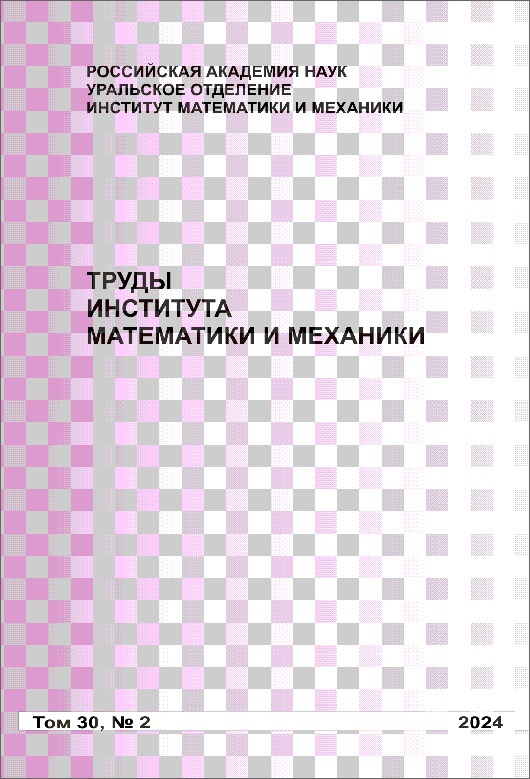|
This article is cited in 3 scientific papers (total in 3 papers)
The method of penalty functions and regularization in the analysis of improper convex programming problems
V. D. Skarinab
a Institute of Mathematics and Mechanics, Ural Branch of the Russian Academy of Sciences, Ekaterinburg
b Ural Federal University named after the First President of Russia B. N. Yeltsin, Ekaterinburg
Abstract:
We consider the questions of correction of improper convex programming problems, first of all, problems with inconsistent systems of constraints. Such problems often arise in the practice of mathematical simulation of specific applied settings in operations research. Since improper problems are rather frequent, it is important to develop methods of their correction, i.e., methods of construction of solvable models that are close to the original problems in a certain sense. Solutions of these models are taken as generalized (approximation) solutions of the original problems. We construct the correcting problems using a variation of the right-hand sides of the constraints with respect to the minimum of a certain penalty function, which, in particular, can be taken as some norm of the vector of constraints. As a result, we obtain optimal correction methods that are modifications of the (Tikhonov) regularized method of penalty functions. Special attention is paid to the application of the exact penalty method. Convergence conditions are formulated for the proposed methods and convergence rates are established.
Keywords:
convex programming, improper problem, optimal correction, penalty function methods, Tikhonov regularization method.
Received: 17.05.2018
Citation:
V. D. Skarin, “The method of penalty functions and regularization in the analysis of improper convex programming problems”, Trudy Inst. Mat. i Mekh. UrO RAN, 24, no. 3, 2018, 187–199; Proc. Steklov Inst. Math. (Suppl.), 305, suppl. 1 (2019), S166–S177
Linking options:
https://www.mathnet.ru/eng/timm1562 https://www.mathnet.ru/eng/timm/v24/i3/p187
|

| Statistics & downloads: |
| Abstract page: | 282 | | Full-text PDF : | 75 | | References: | 68 | | First page: | 5 |
|




 Contact us:
Contact us: Terms of Use
Terms of Use
 Registration to the website
Registration to the website Logotypes
Logotypes









 Citation in format
Citation in format 
